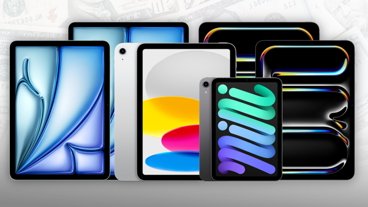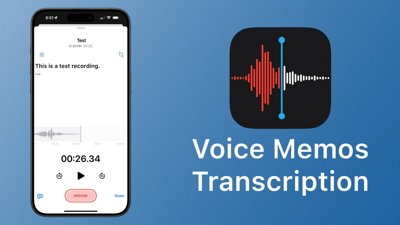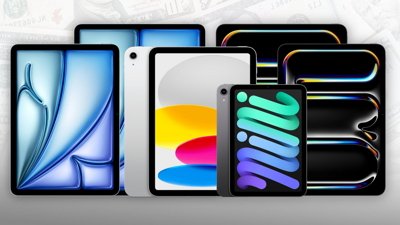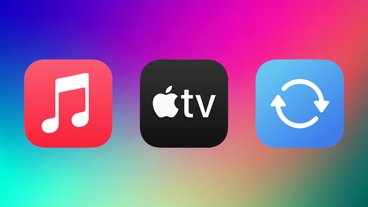Apple's App Store subscription rules spark anti-trust concerns, irk developers
After announcing App Store subscription services at a media event with News Corporation earlier this month, Apple revealed the details and terms of the new service on Tuesday. Apple's terms forbid publishers from including links to external websites to purchase content or subscriptions and require publishers to offer in-app deals equal to or better than the same deals offered outside of the app.
Apple CEO Steve Jobs explained the new subscription rules. "Our philosophy is simple — when Apple brings a new subscriber to the app, Apple earns a 30 percent share; when the publisher brings an existing or new subscriber to the app, the publisher keeps 100 percent and Apple earns nothing," said Jobs. "All we require is that, if a publisher is making a subscription offer outside of the app, the same (or better) offer be made inside the app, so that customers can easily subscribe with one-click right in the app."
Antitrust issues
According to several law professors contacted by The Wall Street Journal, Apple's new subscription service could "draw antitrust scrutiny."
Antitrust professor Shubha Ghosh told The Journal that his "inclination is to be suspect" about the new service. At stake is whether Apple has a sufficiently dominant market position to block competitors and whether it is exerting "anticompetitive pressures on price," Ghosh said.
However, proving Apple is indeed a dominant market player could be a difficult task. Publishers could claim that Apple's share of the tablet market makes its subscription service terms anticompetitive. In response, Apple could argue that the market includes all digital and print media and the disgruntled publishers are free to utilize other outlets to reach their customers.
"Millions will be spent litigating how broad the market is," said Herbert Hovenkamp, an antitrust professor at the University of Iowa College of Law, adding that the most likely definition of the market would be digital media.
Though Hovenkamp doubts Apple has enough of a dominant position in that market to prompt an antitrust investigation, he noted that if Apple reaches 60 percent or more of all digital subscriptions, "an antitrust challenge would seem feasible."
According to Ghosh, Apple could defend itself by coming up with a "business justification" for its subscription terms, as courts often look for legitimate business reasons for actions that are accused of being anticompetitive.
Developer, publisher ire
Meanwhile, initial developer, distributor and publisher response to Apple's subscription details announcement has been overwhelmingly negative, with some publishers objecting to Apple's 30 percent revenue share, while others have expressed frustration over Apple's terms that require subscriptions to be sold through Apple for the same price or less as that of third-party websites.
Digital music subscription service Rhapsody issued a statement Tuesday calling Apple's 30 percent cut of subscription revenue "economically untenable," Engadget reports.
"The bottom line is we would not be able to offer our service through the iTunes store if subjected to Apple's 30 percent monthly fee vs. a typical 2.5 percent credit card fee," the statement read.
Rhapsody also hinted at potential legal action in response to Apple's policy. "We will be collaborating with our market peers in determining an appropriate legal and business response to this latest development."
Responding to Apple's announcement, Marco Arment, creator of the popular Instapaper app, called Apple's requirement of matching subscription prices through iTunes "a huge dick move" in a post to Twitter on Tuesday.
Forbes reports that the Online Publishers Association, which includes publishers such as Time, Hearst, Conde Nast, Bloomberg and Forbes, is worried that Apple's policies don't provide sufficient flexibility for both publishers and consumers.
Apple has reportedly issued a compliance deadline of June 30 for apps already available in the iOS App Store. Earlier this month, Sony revealed that an e-reader application it had submitted to Apple's App Store had been denied, prompting speculation that Apple had changed its rules regarding in-app purchases. Apple denied the claim by saying that it was merely enforcing pre-existing guidelines.
Prior to Apple's announcement offering details of its subscription service, several consortiums of European publishers had expressed concerns over Apple's subscription service, with some publishers feeling "betrayed" by Apple's policies. Last month, Belgian economy minister Vincent Van Quickenborne requested an antitrust investigation of Apple over possible anticompetitive maneuvers in the newspaper market.
 Josh Ong
Josh Ong












 Malcolm Owen
Malcolm Owen

 Amber Neely
Amber Neely

 Marko Zivkovic
Marko Zivkovic
 David Schloss
David Schloss
 Wesley Hilliard
Wesley Hilliard
 Mike Wuerthele and Malcolm Owen
Mike Wuerthele and Malcolm Owen









171 Comments
"Our philosophy is simple ? when Apple brings a new subscriber to the app, Apple earns a 30 percent share - in perpetuity on all future revenue; when the publisher brings an existing or new subscriber to the app, the publisher keeps 100 percent and Apple earns nothing,"
I have adding some omitted words into that press release.
One more time publishers:
YOU CAN STILL SELL YOUR STUFF HOW YOU ARE DOING IT. YOU JUST HAVE TO ADD THE OPTION OF SELLING IT THROUGH APPLE.
YOU DON'T HAVE TO SELL THINGS ON THE APP STORE. REALLY. IF YOU DON'T LIKE IT, DON'T SELL THERE.
If you want to tap into a market made by Apple, you need to give them their due.
It's not "Developers ire", but the publishers. Two different types of folks.
iPhone developers think the App Store guidelines are just fine. As a consumer, to have all financial transactions go through one player just makes it easier instead of dealing with multiple sites.
Apple being dickish while being on top. Go figure.
Hey, sflocal, Instapaper app isn't published by a "publisher", but by a developer. Go read what he thought about the move.
This only proves what I have always suspected. Had Apple dominated the nineties, it would have been ten times worse than Microsoft's domination. Not that I liked it anyway.
Everyone is flinging accusations of antitrust across the Internet. Where is the monopoly? Who is the competition that's blocked by Apple demanding 30%?
Inigo Montoya: You keep using that word. I do not think it means what you think it means.